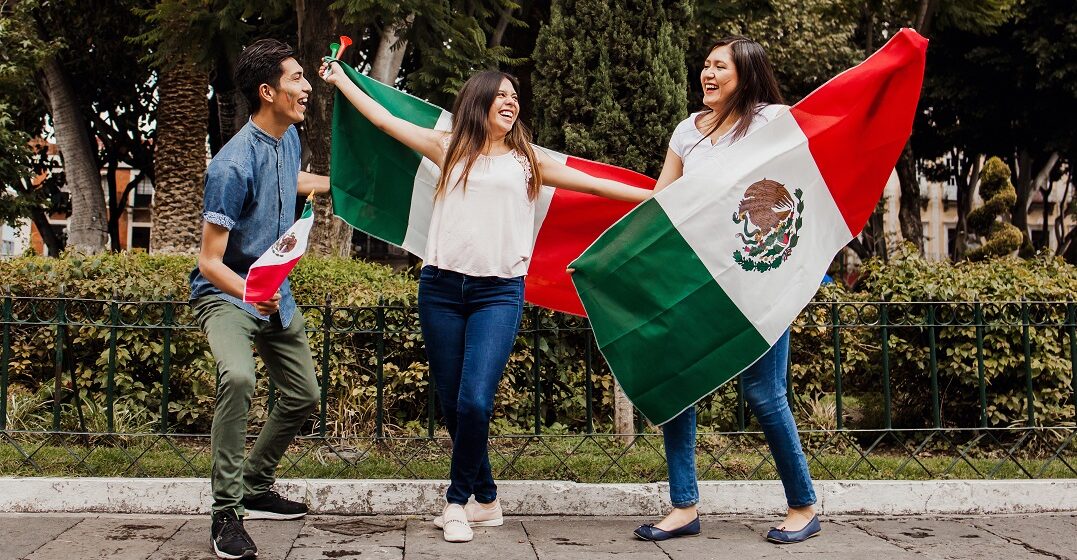Updated on May 17, 2023

8 Mexican sayings to help you better understand the culture

When we talk about Mexican sayings, we’re really talking about phrases that have meaning beyond the literal words. The word choice in some Mexican sayings can teach us a lot about the country’s culture and especially its food, which plays a central role. There are also a lot of Mexican sayings that involve history, television, literature and other aspects of local culture.
Being able to understand and use Mexican sayings (or Mexican dichos) has many benefits. Using idiomatic expressions is a challenge for Spanish language learners of all levels. Once you have a handful in your repertoire, you’ll sound fluent by speaking in the way a local does rather than always translating directly from English. On that note, here are eight interesting Mexican sayings you can start using today.
Literal translation: To eat your sandwich before recess
A torta is a Mexican sandwich. It’s made from a bread roll called a bolillo, which is cut in half and stuffed with different fillings. A torta is a common snack for children to bring for school lunch.
Comerse la torta antes del recreo is a Mexican proverb expressing that someone has done something before they should. This phrase often comes up during a Spanish gossip session to describe a couple that has engaged in physical relations before marriage.
Literal translation: Like water for chocolate
For 4,000 years, traditional Mexican chocolate has been a drink made by mixing cacao powder and water (or milk). The water and cacao mix is brought to near boiling until a foam appears on top.
Estoy como agua para chocolate means that you’re at the point of anger, rage, fury or passion. The English counterpart of this Mexican dicho would be, “My blood is boiling.”
Como agua para chocolate became an even more popular saying after the 1992 Mexican film with the same name was released. The movie thrilled fans of romance author Laura Esquivel, who wrote the novel on which the movie is based.
Literal translation: Here, only my pork rinds thunder
A chicharron is fried pork skin or a crunchy flour-based chip. In Mexico, chicharrones are eaten as a chip to dip in guacamole or to garnish soups or tacos.
An expert in making chicharrones will make them so crunchy that biting them would sound like thunder.
Aquí nada más mis chicharrones truenan means that the speaker is the authority, expert, boss or top dog in a given situation.
Literal translation: I eat a taco with my tongue
We are all familiar with the taco — easily one of the greatest foods in the world and an iconic dish of Mexico. Lengua means “tongue,” and someone that tells a lot of lies is good at using their tongue.
De lengua me como un taco is a common Mexican saying used when you suspect someone is lying. To say you eat a taco with your tongue is to say you don’t chew it with your teeth. You mock the liar with a lie, meaning that you don’t believe what someone is saying.
Literal translation: You throw yourself around like El Borras
A popular Mexican TV show from 1969 to 1973, Los Beverly de Peralvillo revolved around a taxi driver named El Borras. He did what he wanted without thinking things through, which led to a lot of misadventures along the way.
Te avientas como El Borras is used to describe someone who does things hastily and without thinking of the consequences.
Literal translation: What wave?
In the counterculture of 1960s Mexico, a literary movement emerged called the Literatura de la Onda. The youth of Mexico City sought to break traditional literature by using more open and frank ways of speaking and writing. Onda means “wave” or “vibe,” so this phrase is asking “What’s the vibe?” or “What’s up?” The term onda was derogatory at first, but eventually found its way into daily use.
¿Qué onda? is a typical greeting, just like ¿Cómo estas? (How are you?) or Hola (Hello).
Literal translation: Throw the roe
In the Real Academia, la hueva is a group of small eggs from certain fishes, known as “roe” in English. In Mexico, however, la hueva means laziness.
Echar la hueva means to do nothing productive. It can be used to explain that you didn’t complete a task. Aún no lavé los platos. Eché la hueva. (I didn’t wash the dishes yet. I threw the roe.)
Literal translation: Gave themselves a frog
In Spanish, the word for frog is rana. You won’t find ranazo in the Real Academia, but Chileans and Mexicans use it often. Ranazo may reference how a frog lands straight down after a big jump.
Se dio un ranazo means to fall really hard. If your friend falls over at the New Year’s party, use this one.
Armed with these eight Mexican sayings, you can gossip and give unsolicited advice any time you want. At the very least, you’ll get a good laugh when Mexicans hear you using these funny Mexican sayings. Don’t just sit back and echar la hueva — get out there and try it!